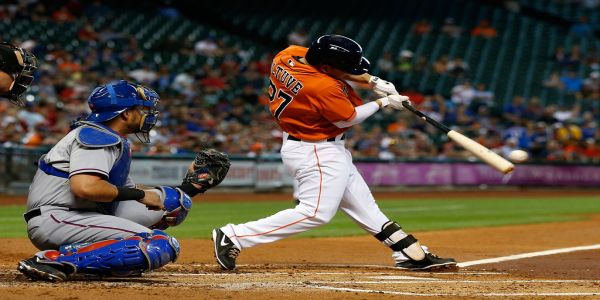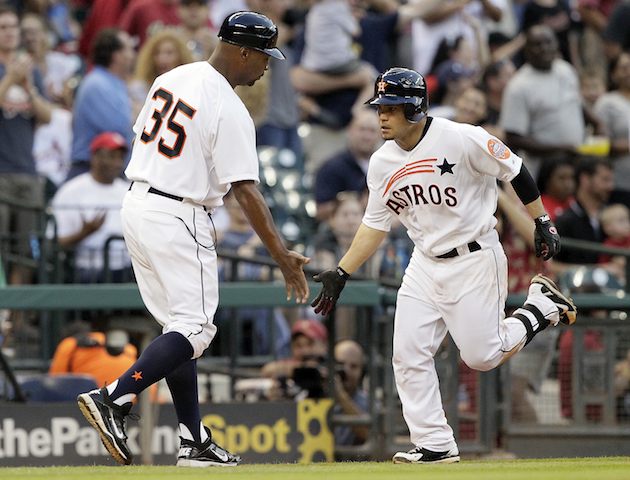Total Run Index: Substitution Value – Second Basemen


Past is prologue. The past is the best predictor of the future, but there is no perfect predictor of the future. So, when I think about total run index (TRI) and its use in fantasy sports, I have to consider the limitations. For anyone that studies sabermetrics, there are two primary limitations to our studies. First, we must acknowledge that we are studying the past and that players are organic. They will change independently of what their numbers will say.
The second limitation is the limitation of small sample size. At second base, we see these two factors coincide to affect our substitution value rankings substantially. There are a number of younger players at the position, and young players will grow and learn independently of their TRI score. The same is true for older players in reverse. The overall effect is a jumbling of the overall ranking and all we can do is try to keep up.
On the first base list we saw the first of what I would call an educated guess. Jose Abreu has not faced a big league pitcher and yet he is destined to be the everyday first baseman for the Chicago White Sox. We assumed he would be at the median of the first base population. Will he end up there? It’s anyone’s best guess. Kolten Wong will end up being the everyday second baseman in St. Louis in all likelihood. We are making the same assumption about him. Will it be accurate? It’s anyone’s best guess.
|
TRI |
POS |
SUB |
|
| Robinson Cano |
34.6 |
6.2 |
28.4 |
| Ben Zobrist |
24.2 |
6.2 |
18.0 |
| Dustin Pedroia |
18.7 |
6.2 |
13.5 |
| Matt Carpenter |
16.7 |
6.2 |
10.5 |
| Chase Utley |
14.6 |
6.2 |
8.4 |
| Ian Kinsler |
13.2 |
6.2 |
7.0 |
| Jason Kipnis |
12.8 |
6.2 |
6.2 |
| Scooter Gennett |
10.2 |
6.2 |
4.0 |
| Howie Kendrick |
9.8 |
6.2 |
3.6 |
| Daniel Murphy |
7.5 |
6.2 |
1.3 |
| Neil Walker |
7.2 |
6.2 |
1.0 |
| Marco Scutaro |
6.5 |
6.2 |
0.3 |
| Kolten Wong |
6.2 |
6.2 |
0.0 |
| Aaron Hill |
5.9 |
6.2 |
-0.3 |
| Jedd Gyorko |
5.9 |
6.2 |
-0.3 |
| Brandon Phillips |
5.3 |
6.2 |
-0.9 |
| Rickie Weeks |
2.5 |
6.2 |
-3.7 |
| Omar Infante |
2.0 |
6.2 |
-4.2 |
| Dan Uggla |
1.8 |
6.2 |
-4.4 |
| Alberto Callaspo |
1.8 |
6.2 |
-4.4 |
| Anthony Rendon |
-0.3 |
6.2 |
-6.5 |
| Jose Altuve |
-3.1 |
6.2 |
-9.3 |
| Jurickson Profar |
-4.9 |
6.2 |
-11.1 |
| Brian Dozier |
-5.2 |
6.2 |
-11.4 |
The players in bold font represent players where I am not confident that TRI necessarily captures their true fantasy value. Of course, there are a number of reasons for that, but mostly it is because of small sample sizes. So, we will take some time to investigate those players in a little more detail than we see above.
Scooter Gennett—Milwaukee Brewers
This is one of those scenarios where small sample size rears its ugly head. Gennett killed it last year in the couple of months he was up, so his TRI score is likely an overestimation of his ability. First, we must assume that he will get the majority of the playing time and that is not necessarily a safe assumption with Rickie Weeks still around.
In three and a half minor league seasons, Gennett never hit more than nine home runs or stole more than 14 bases. Granted, he may more free reign in the big leagues, but we are looking at a guy with a career OPS under .750 in the minors. I’m not exactly sure we are looking at a superstar here, but he should be at least solid if given the opportunity.
Kolten Wong—St. Louis Cardinals
Even though the Cardinals brought in Mark Ellis, we can presume that Wong will get every opportunity to win the job out of Spring Training. Ellis would seem to be the floor of what the Cardinals hope to get out of second base. Wong was taken in the first round and has rocketed through the Cardinals system on the strength of his bat. Placing Wong at the median point at second base puts him squarely 13th on the list of the top 24 guys. I’d say that is a pretty conservative estimate of his ability to produce.
Let’s keep in mind how Matt Carpenter rifled up the list just last season after beginning in relative obscurity. It is highly probable that Wong will last that long in most drafts because he does not have elite power or elite speed. What he will do is produce solidly across the board and in that lineup it could be worth some extra runs and RBI.
Rickie Weeks—Milwaukee Brewers
Keep in mind that TRI is built on the past and it isn’t a representation of how much a player will play, but what he will likely produce at when he plays. Weeks is likely not going to play all that much, but he should still be a fantasy consideration. If Gennett slips then Weeks will likely get the bulk of the playing time. He won’t be a great percentage player, but he will offer some pop and some speed off of your bench. I wouldn’t draft him at this point, but he wouldn’t be a bad waiver claim.
Jose Altuve—Houston Astros
The diminutive player is a fan favorite in Houston and you can’t help but like him, but he comes with price. People that pick him as a fantasy starter will love the durability and the steals, but that is really all that he offers in the long run. In a traditional 5×5 league that’s enough to go on, but in leagues that carry an OBP component he is just too much of a liability. So, just consider what you want him for and how much you actually need before pulling the trigger.
Jurickson Profar—Texas Rangers
Ian Kinsler hasn’t been quiet about his former team lately, but you have to consider the source. He was essentially the odd man out in a crowded middle infield. If Profar is the 23rd best second baseman after 2014 then that trade will be an out and out failure (at least in 2014). Profar has good power and good speed, but the most important asset he has is youth. That trade wasn’t about 2014, but about what the team will become when Profar is at his peak and Prince Fielder is still hitting bombs.


